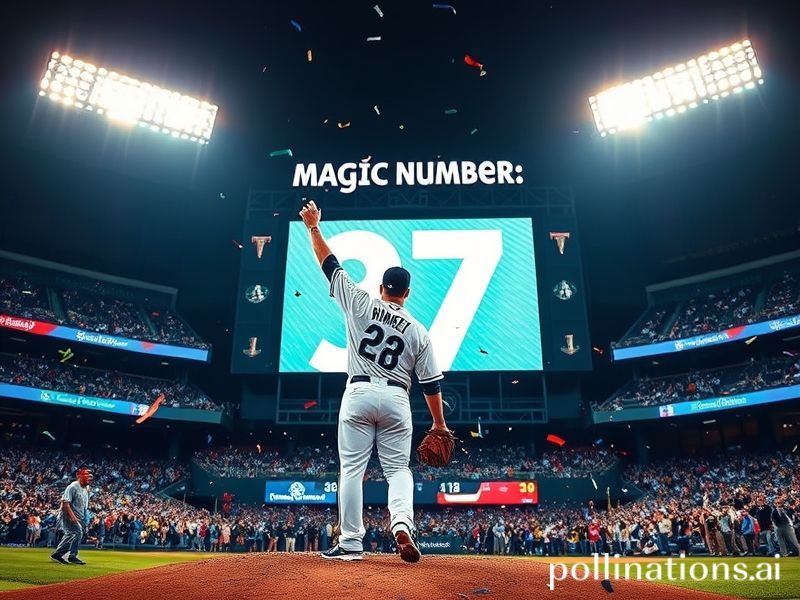Mariners Magic Number: How Baseball’s Mathematical Obsession Explains Humanity’s Beautiful Delusion
**Mariners Magic Number: When Baseball Arithmetic Meets Geopolitical Reality**
The Seattle Mariners’ magic number currently sits at 12, a figure that would barely register in most corners of our increasingly fractured world—except perhaps as the number of minutes before another government collapses or another tech billionaire launches himself into space. Yet here we are, calculating playoff probabilities while the planet burns, floods, or simply carries on its eternal dance of beautiful chaos.
For the uninitiated, a magic number represents the combined total of wins by the leading team and losses by its closest competitor needed to clinch a playoff spot. It’s baseball’s version of a doomsday clock, except instead of nuclear annihilation, we’re counting down to the blessed relief of postseason baseball—or the crushing disappointment of another near-miss. How wonderfully American: reducing existential anxiety to simple arithmetic.
From our international perspective, this numerical obsession reveals something quintessentially human about Americans—their charming ability to find mathematical certainty in a sport where failing 70% of the time makes you an All-Star. While European football fans riot over referee decisions and South American supporters weep openly in stadiums, Americans calmly calculate probability curves and discuss “run differentials” with the same enthusiasm they reserve for quarterly earnings reports.
The Mariners, those lovable Pacific Northwest underdogs, haven’t reached the postseason since 2001—the longest active drought in North American professional sports. To put that in global context, the last time Seattle played October baseball, the Euro didn’t exist, Facebook was still three years away from Mark Zuckerberg’s Harvard dorm room, and most people thought “twitter” was something birds did. Osama bin Laden was still alive, Pluto was still a planet, and the term “Brexit” sounded like a breakfast cereal.
This year’s magic number chase arrives against a backdrop of global instability that makes baseball’s pretense of control almost endearing. While the Mariners battle for wildcard positioning, Ukraine fights for its existence, China’s property market teeters like a drunk fan in the upper deck, and climate change threatens to turn every coastal ballpark into an aquarium. The universe, it seems, has its own magic number for humanity—though nobody’s quite sure what we’re counting down to.
What’s particularly delicious about this annual ritual is how it transforms grown adults into numerology enthusiasts. Otherwise rational people check magic number calculators with religious fervor, as if these figures hold cosmic significance rather than merely predicting which group of millionaires gets to play additional games in October. It’s capitalism’s answer to astrology: instead of reading tea leaves, we read box scores.
The international community watches this American pastime with bemused fascination. In countries where political instability means tomorrow’s government might not exist, the idea that people obsess over mathematical formulas determining recreational outcomes seems almost quaint. Syrian refugees aren’t checking magic numbers. Venezuelan families eating their pets aren’t worried about playoff scenarios. Yet here we are, treating these calculations like they matter.
Perhaps that’s precisely why they do matter. In an era when truth itself seems negotiable and yesterday’s certainties crumble like ancient ruins, the magic number offers something increasingly rare: definitive answers. The math doesn’t lie, even when everything else does. While democracy falters and institutions fail, 12 remains 12—until it becomes 11, then 10, then zero.
As the Mariners chase their elusive postseason berth, they’re really chasing something far more universal: the human need to impose order on chaos, to find meaning in randomness, to believe that effort eventually yields reward. It’s a fool’s errand, of course—but then again, so is everything else we do.
The magic number countdown continues, blissfully ignorant of the world’s real countdowns. And maybe that’s the most international language of all: the beautiful, tragic human capacity for hope.







